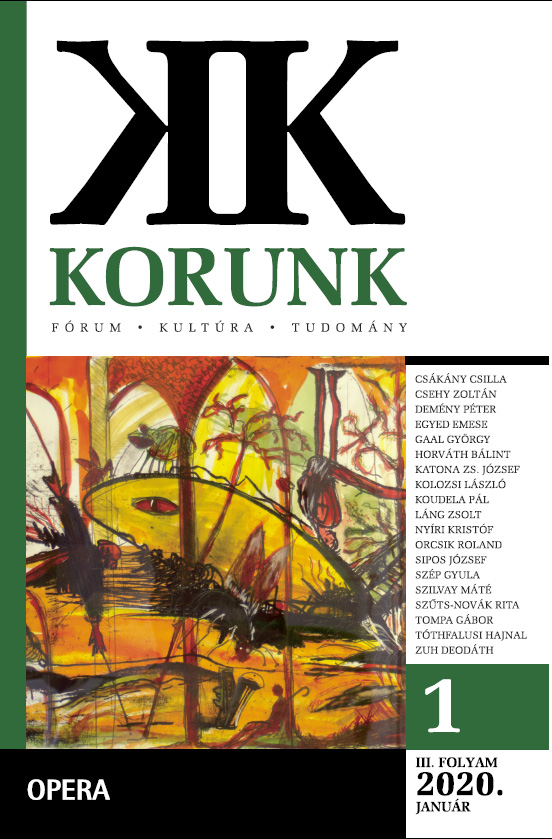
We kindly inform you that, as long as the subject affiliation of our 300.000+ articles is in progress, you might get unsufficient or no results on your third level or second level search. In this case, please broaden your search criteria.


Fischer Botond: Tavasz lesz, Corina. Erdélyi Híradó – FISZ, Kvár–Bp., 2018.
More...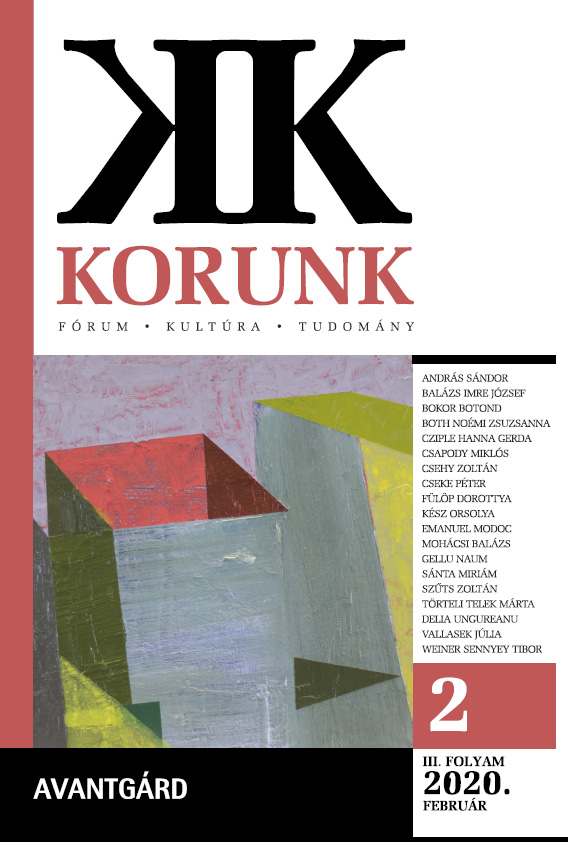
Sánta Miriám: Hétfőn meghalsz. Erdélyi Híradó Kiadó – FISZ, Kvár–Bp., 2019.
More...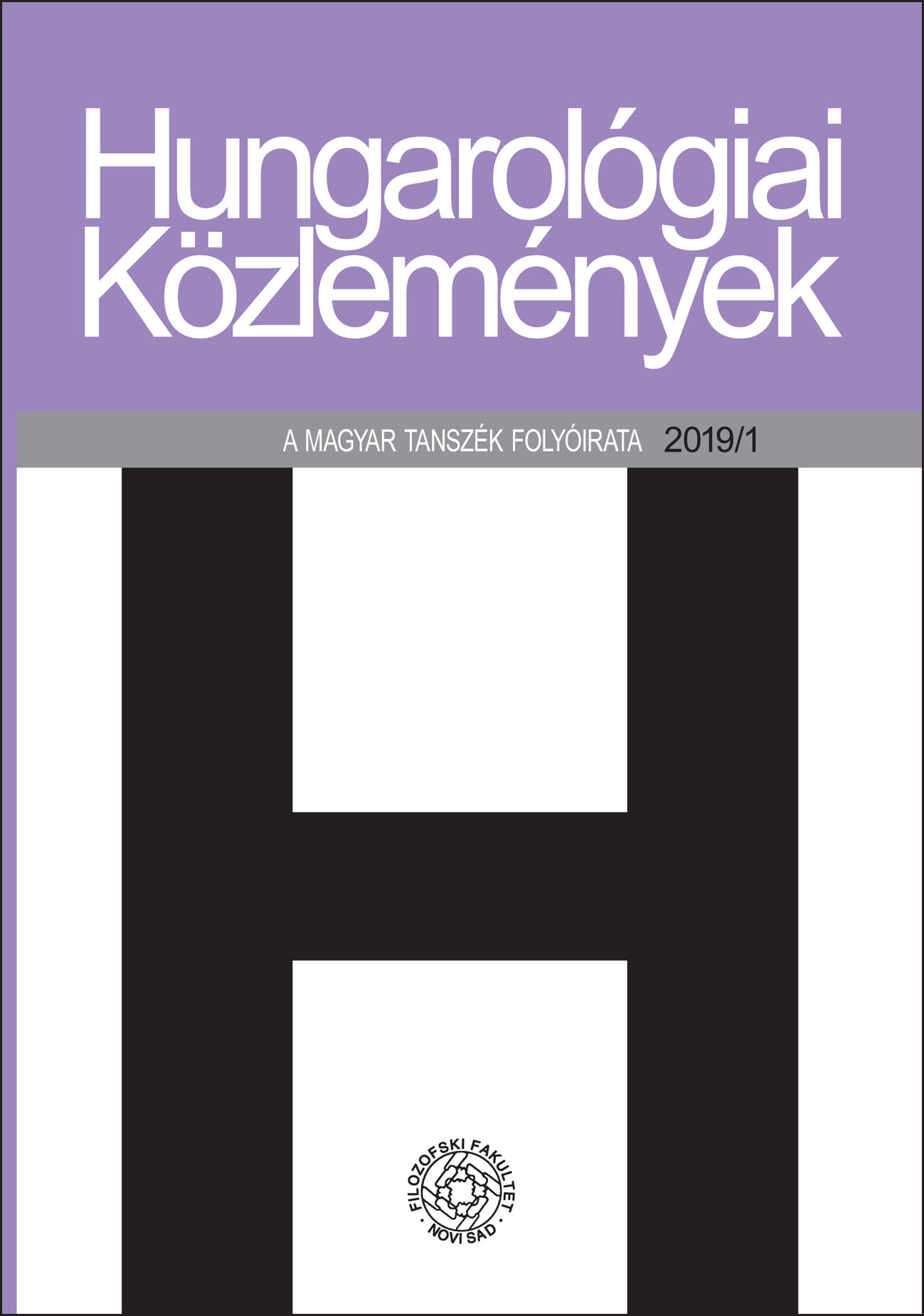
Iván Mándy’s selected letters were published for the 100th anniversary of his birth, which is a volume of “literary genres” the author himself was less interested in. “Selected” is in inverted comas because it does not mean that the letters were selected, but rather refers to the ones not yet found, that is, to the problem of the collection being incomplete. The study primarily focuses on the relationship between Mándy’s texts and their context in relation to the letters, as well as the communication network which developed between the writer and his pen mates. A number of literary historical and cultural policy moments can be found in these letters sent and received. Condensed statements woven into the texts often induce literary and cultural discourse, including those that disregard the stereotypes associated with the Mándy opus. Ferenc Darvasi attained and edited the letters he had sent, dedications, pictures and illustrations attained from private and public collections.
More...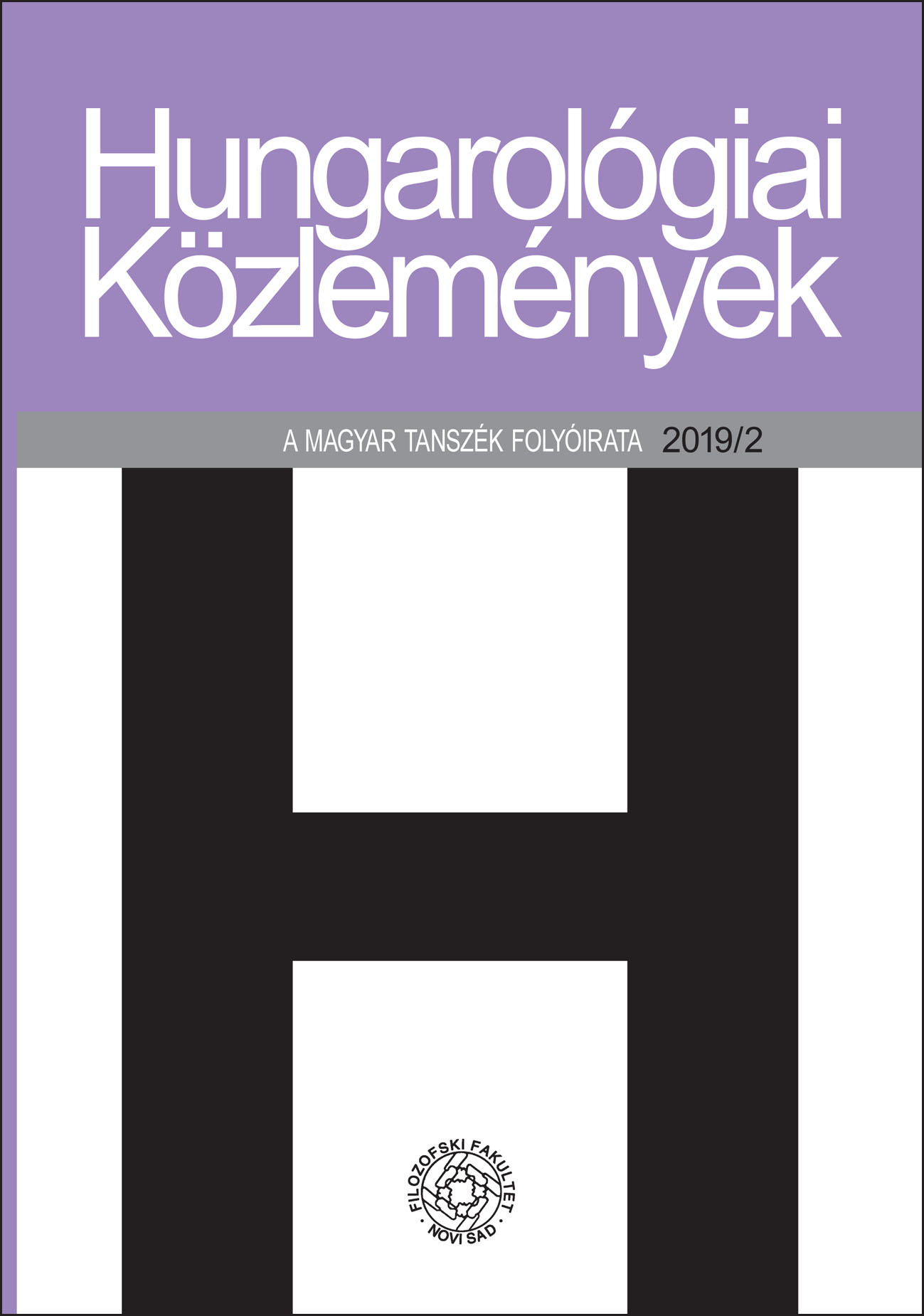
The paper examines Géza Ottlik’s novel School at the Frontier, as well as his other writings connected to the issue, along the concepts of civilisation, supervisory order and cruelty. It gives a survey of the power structure that allows for the cruelty in the boys’ military school which he presents in the novel, and he also deals in detail with the peculiarities of the moral view of the work. The study argues that Ottlik by presenting how a microcommunity functions reveals the “illusionary nature” of civilisation, namely, the fragility of the moral order of civilisation and the cruel human world hidden behind the „disguise” of external civilisation features.
More...
The plot of the novel The Last Saturday (Utolsó szombat) by Márk Mezei is set in a real space and time, in a rather narrow framework: 14th January 1944, in a dilapidated apartment building in Budapest, 32 Nagyatádi Szabó Street. One protagonist, Aaron Rokeach, the Rebbe of Belz, is a historical character: his life references are known. The other protagonist, Magda, is a fictional character and – contrary to the Jewish Orthodox leader – she comes from an assimilate family, she is ignorant of the traditions of her religion, she is bisexual and an alcoholic. They both fall into a state of extreme loneliness generated by fear of being caught and destroyed: the Rebbe becomes a traitor leaving his community and brothers by faith, while Magda becomes a victim of love betrayal. They come into an identical life situation, only a few meters apart: nevertheless, the sense of fear erects an impenetrable wall between them. They never meet. This paper examines the motivic and tropological features of the narrative.
More...
In 1947 Gyula Illyés went to France twice. He spent five weeks in Paris at the beginning of the year, and then travelled to southern France in November. He recorded his two journeys in a travelogue. This study deals with his days in Paris written about in his work Franciaországi változatok (French Variations). The characteristics of this travelogue is that it is a collection of texts of various styles and mosaic-like features: it mixes essays and actual travel descriptions, most of it are strolling around descriptions. The structure of the work’s timeline is also intermittent, and there are many ellipses and omissions at the time of narration. The entire travelogue is imbued by the aesthetic of a wanderer. Descriptions and figures of strollers became popular in the 19th century when a new “landscape”, that of the city, appeared. Illyés’ work is not simply strolling descriptions, but the fragmentariness of the work’s form, even with the interruptions and omissions, visualises strolling. Thus, the work sets the stage for the act of walking not only on the content level but also in its form.
More...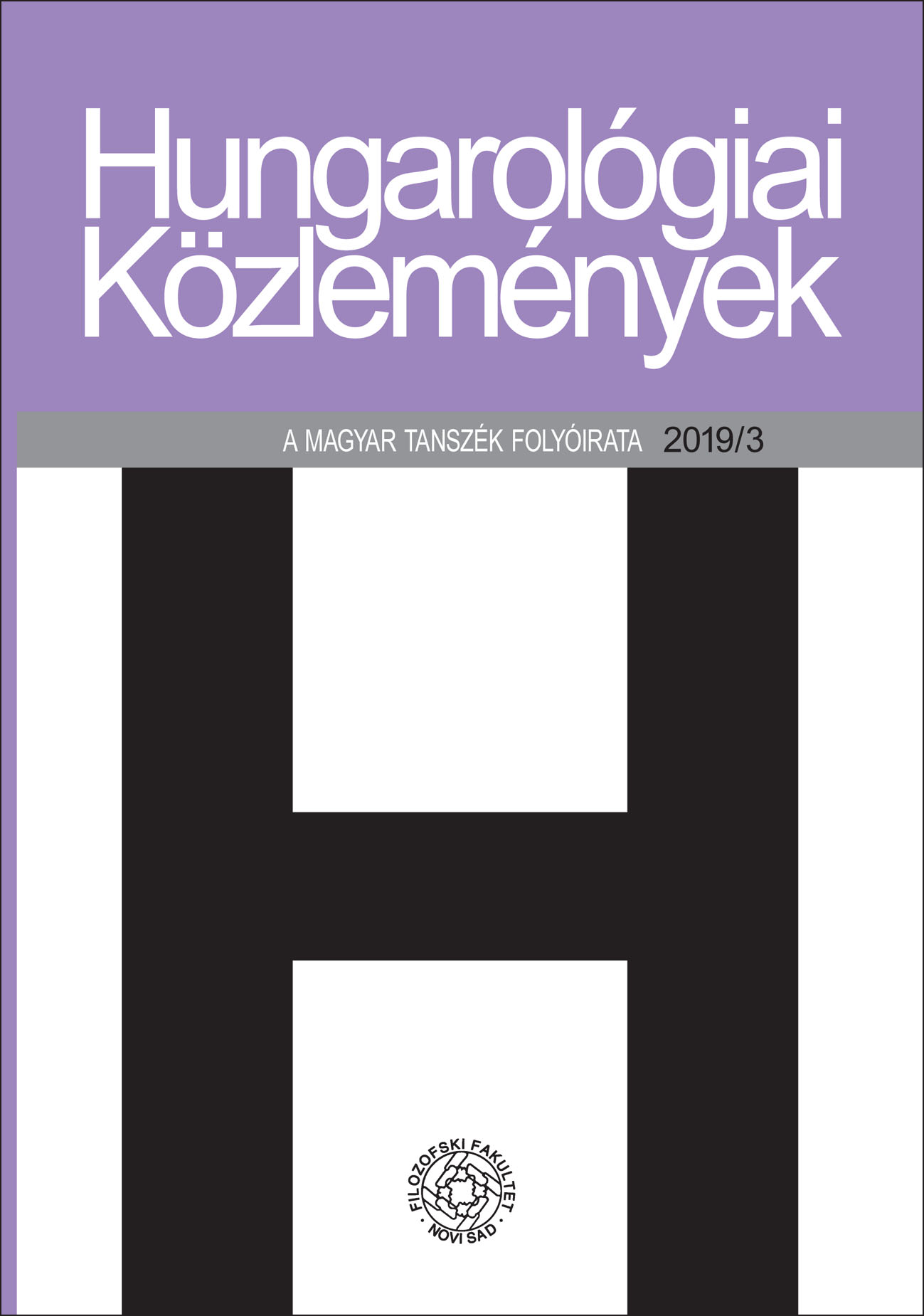
The central problem in Géza Gárdonyi’s short novels is the following poetical principal: “a novelist must seek for the character-creator thrill – the trouble, misery, difficulties, and exigencies that distress the character’s substance” (Gárdonyi 1974, 77). In Gárdonyi’s short novel titled Ki-ki a párjával [Every Jack Will Get His Jill] (1918) the exigency is the tuberculosis. The narration analyses the acts of humans suffering from deadly disease. As the corporal disease becomes the allegory of the destruction of interpersonal relations in the text, the novel is turning to analyse the deformations of the soul. But the most dynamic semantic extension of the text is based on the production of the metaphors of tuberculosis and lungs that goes far beyond the allegoric meaning. In my essay I would like to reveal the mechanism of those metaphoric processes that produce the figural counterparts of the main characters affected by tuberculosis.
More...
The transformation of one of the most important genres of Hungarian literature at the turn of the 20th century, the short novel deforms all the other representatives of literary prose, and creates new narrative types. All these short novels (e.g. István Toldy: Anatole, János Asbóth: Álmok álmodója [Dreamer of Dream], Gyula Reviczky: Apai örökség [Paternal Inheritance]) analyse the possibilities and the difficulties of the narrative production of the subject. A considerable way to achieve this purpose is to introduce art and artists as the main character of the short novel. In my essay I would like to interpret the complex problem of the first Hungarian artist novel. The novel titled Artist Love by Zsigmond Justh confronts us with the difficulties of the verbal representation of all those emotions and moods that affect us when we experience art.
More...
Textology is fundamentally a practice-oriented activity. Yet, examples from Hungary and the world show that researchers involved in scholarly text editing have to face the challenges of dominant theories in literary studies from time to time. On the basis of practical experiences in critical editing of Babits’s poems, I examine in the following the impact the typewriter had on the creation of poems. In this analysis I rely on Friedrich Kittler’s mediological theses. My purpose is to demonstrate the opportunities available to describe the differences between typewriting and handwriting. Finally, from the perspective of literary history I mention the effects and traits of mechanization – also present in mediology – on Babits’s thinking and poetic worldview.
More...
The author as a continuation of his study Introduction into the World of Cruelty: Civilisation, supervisory power and cruelty in Géza Ottlik’s works sums up the modes of cruelty found in the novel, and also shows how human order and world order are connected in the world of Géza Ottlik’s novels. He compares Ottlik’s main work with Imre Kertész’s Fatelessness, and points out the parallels which can be drawn between a cruel regime of surveillance and a concentration camp, or between the literary representation of them.
More...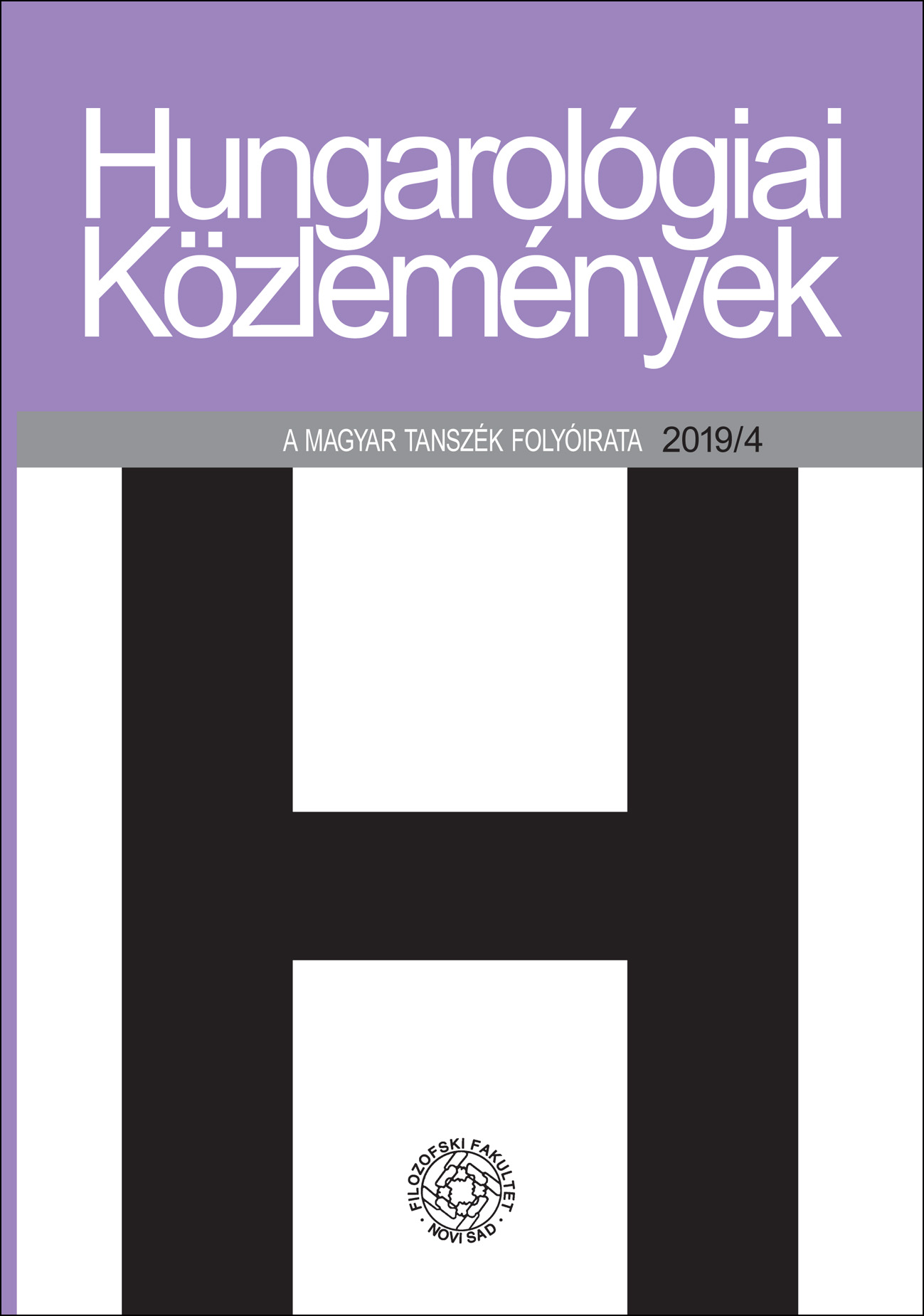
The study starts from the fact that the presence of the genre of elegy has recently strikingly increased in contemporary Hungarian poetry. So much so, that in the lyric output of the last few years we find many volumes that carry the genre marker even in their title. This paper gives an overview of the directions that recent researches on lyricism and genre theory have taken since the noteworthy ideas of New Criticism and the American deconstruction theory (De Man, Culler). The issue is considered in the context of contemporary European and American “new-elegy” of which one of the most dominant version is the so called self-elegy. The latter shows the poet sharply as an imprint of his age and geocultural identity. The study of the genre of elegy in the trend or more precisely trends of what is considered “postmodern” in contemporary Hungarian poetry also calls for a critical rethink of the question of the postmodern canon in this respect. All of this is discussed firstly in the context of Baudelaire’s, and secondly Rilke’s historical impact, which represent two differing but inevitable canons of modernity in the European history of the elegy genre.
More...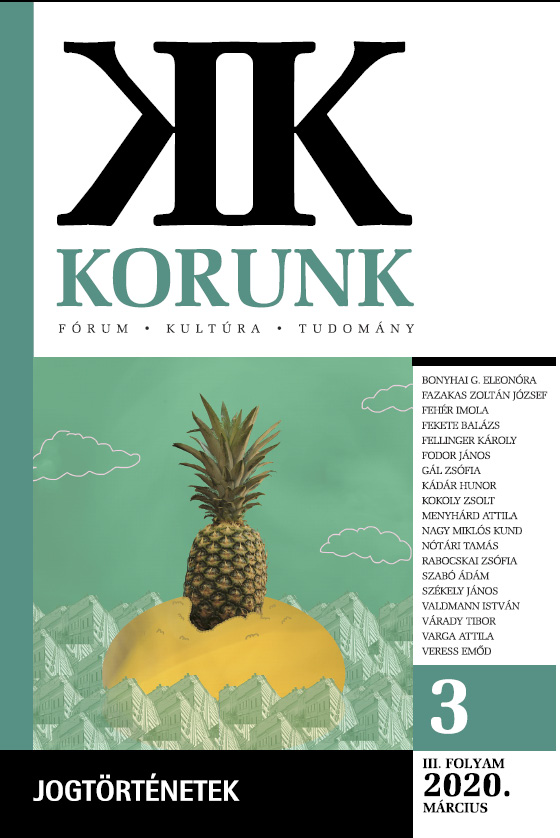
Kőrizs Imre: tévedések fenntartása mellett. Műút könyvek, Miskolc, 2019.
More...
Tisza Kata: A legjobb hely a városban te vagy. Terápiás versek. Scolar, Bp., 2018.
More...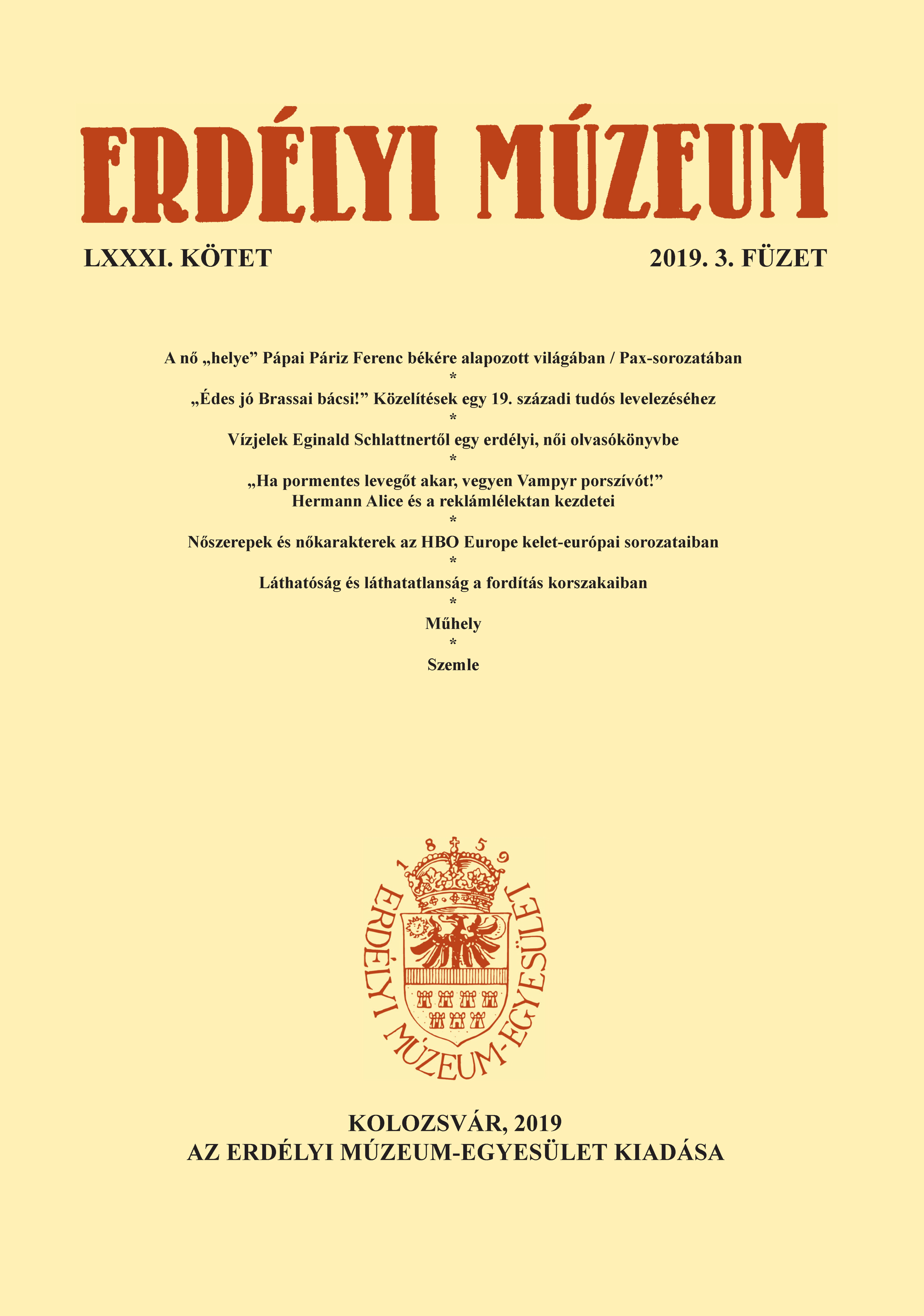
The present study intends to answer the question regarding the role and place of the woman, the profile of the ideal woman used in the unique Pax-series. After the presentation of the series itself follows the individual study of the prefaces as four of the Pax-es have female protectors that implies the existence of praising tropes. The prefaces create a well-known female profile; the protectors are enhanced with positive characteristics according to the century’s expectations. In the same time, it creates a slightly different ideal woman profile on the pages of Pax Aualae, one that resembles a lot the portrait of the ideal man, the rules presented in the introductory parts of the volume.
More...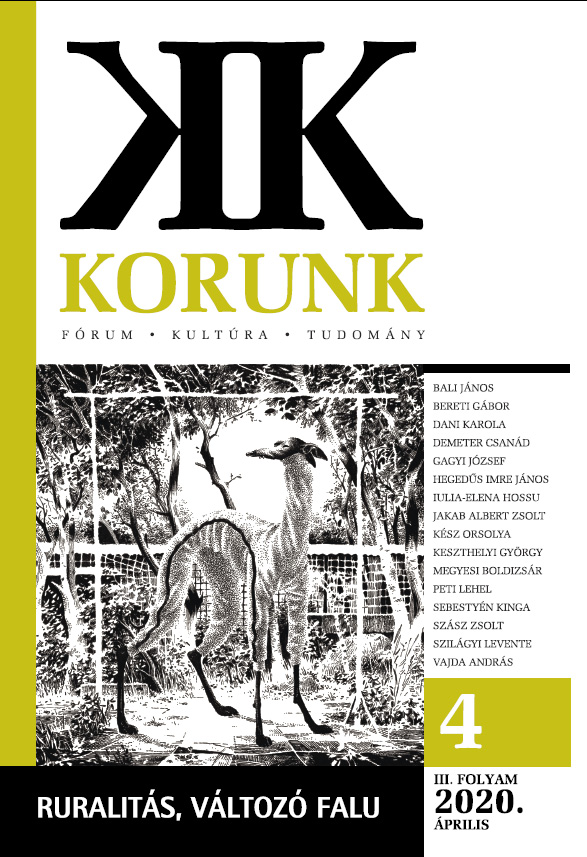


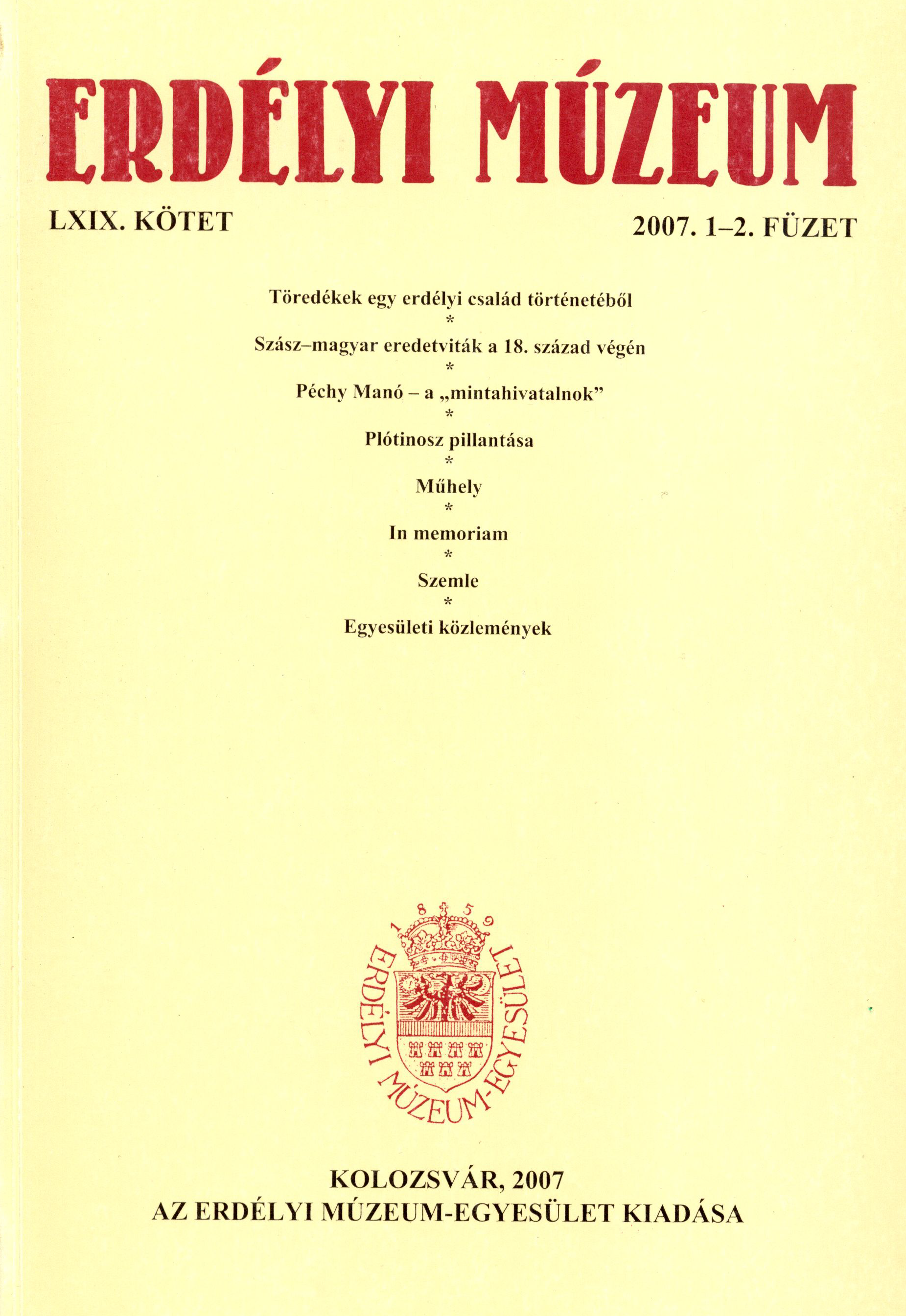
The study deals with questions regarding text editions and their interpretations in Kosztolányi’s afterlife.
More...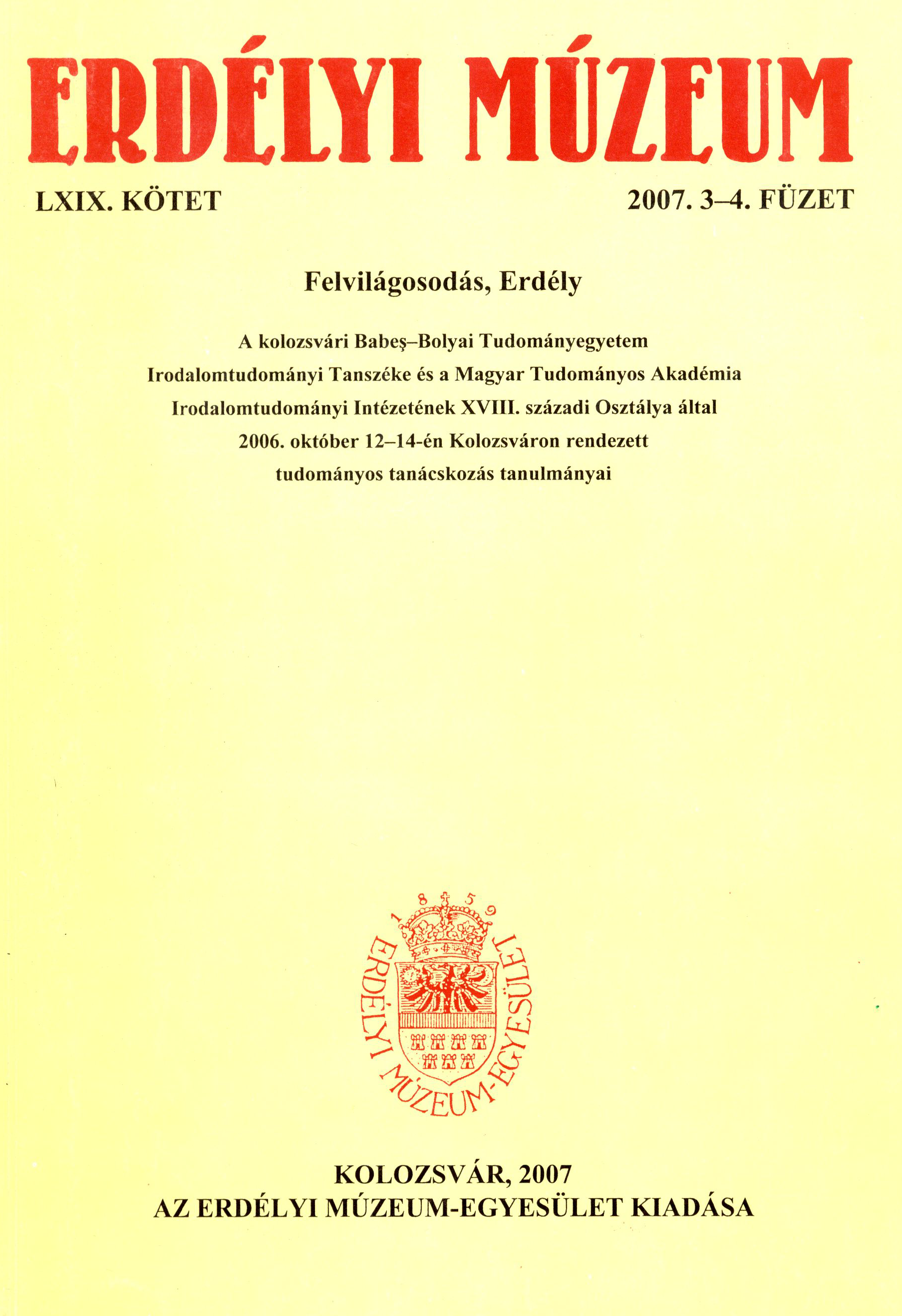
The presentation focuses on circulating drama publications of the era, considering library book catalogues and loan registers from schools, and booksellers’ available lists as primary sources. In the wide sense of literature history approach the personal and institutional features of literacy interconnect, thus the references of school, theatre, library, readers’ circle, bookseller, book collector and lender run into another throughout the analysis. In our inquiry we pay attention not so much on the circumstances of the reading practice, which can be read about in detail in diaries, correspondence, memoirs, but we endeavour to grasp the drama reading culture of group and community through the drama offer of reading circles and information recorded in boarding school libraries.
More...